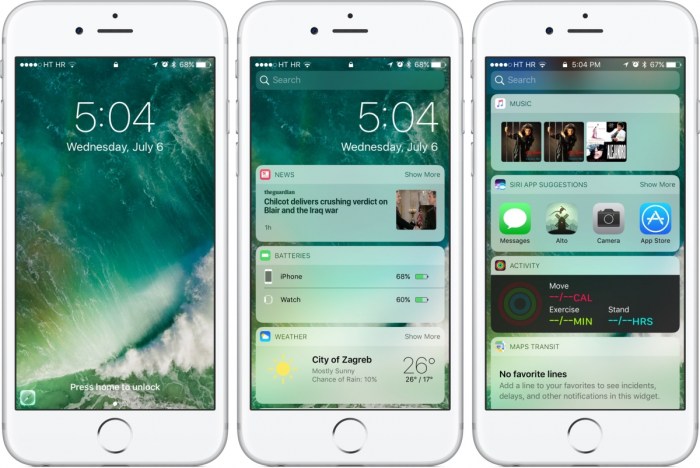iOS 10 beta unencrypted kernel took center stage, raising significant concerns about data privacy and security. This beta release, unlike its predecessors, lacked kernel encryption, leaving the operating system’s core vulnerable to potential exploits. While Apple aimed to improve performance and stability with this decision, the implications for user data security were substantial.
The unencrypted kernel in iOS 10 beta presented a unique challenge, forcing developers and security researchers to re-evaluate their approaches to mobile security. This decision sparked debate about the balance between performance, security, and user privacy.
iOS 10 Beta Release Timeline

The iOS 10 beta program was a significant step in the development of the operating system. It allowed Apple to gather feedback from developers and users, helping them identify and fix bugs and improve the overall user experience. The beta program provided a valuable opportunity for Apple to refine iOS 10 before its official release.
Release Dates and Key Features, Ios 10 beta unencrypted kernel
The iOS 10 beta program consisted of multiple releases, each introducing new features and improvements.
- June 13, 2016: The first beta version of iOS 10 was released to developers, introducing features like a redesigned notifications center, Siri enhancements, and new messaging capabilities.
- July 7, 2016: The first public beta version of iOS 10 was released, allowing users to test the operating system before its official release. This release included bug fixes and performance improvements based on feedback from developers.
- August 16, 2016: The final beta version of iOS 10 was released, introducing features like a redesigned Home app, a new Music app, and a revamped Apple Maps.
- September 13, 2016: iOS 10 was officially released to the public. This release included all the features introduced in the beta program, as well as additional bug fixes and performance improvements.
Unencrypted Kernel and Data Privacy
An unencrypted kernel in iOS 10 beta presents a significant vulnerability that can compromise user data privacy. The kernel, being the core of the operating system, manages all system processes and has access to sensitive user information. When it is unencrypted, it becomes susceptible to various security risks, making user data vulnerable to unauthorized access and potential breaches.
Potential Risks Associated with an Unencrypted Kernel
An unencrypted kernel can expose user data to a range of threats. This lack of encryption creates opportunities for attackers to exploit vulnerabilities and gain unauthorized access to sensitive information stored on the device.
- Malware Infection: An unencrypted kernel makes the device more vulnerable to malware infections. Malicious software can exploit weaknesses in the kernel to gain root access and compromise the entire system, including user data.
- Data Theft: Attackers can exploit vulnerabilities in the unencrypted kernel to steal sensitive data, such as passwords, financial information, personal messages, and other private files.
- System Manipulation: An unencrypted kernel can be manipulated by attackers to alter system settings, install unauthorized applications, or even take control of the device remotely.
- Privacy Violations: The lack of encryption allows attackers to monitor user activity, track location data, and access sensitive information stored on the device, potentially leading to serious privacy violations.
Last Word: Ios 10 Beta Unencrypted Kernel
The unencrypted kernel in iOS 10 beta highlighted the complex interplay between security, performance, and user privacy in mobile operating systems. While Apple eventually addressed this vulnerability through subsequent updates, the incident served as a valuable lesson about the importance of robust security measures, even in the early stages of development. The debate surrounding this decision continues to shape the future of mobile security, pushing developers and researchers to explore innovative solutions that balance performance with strong security protections.
The iOS 10 beta unencrypted kernel vulnerability raised concerns about device security, but it also highlighted the importance of cross-platform compatibility. Think about how much fun it would be to play Minecraft multiplayer cross-platform with friends on different devices, without worrying about security flaws hindering the experience.
The iOS 10 beta unencrypted kernel issue ultimately pushed developers to prioritize security and cross-platform functionality for a more seamless and secure gaming experience.
 Securesion Berita Informatif Terbaru
Securesion Berita Informatif Terbaru